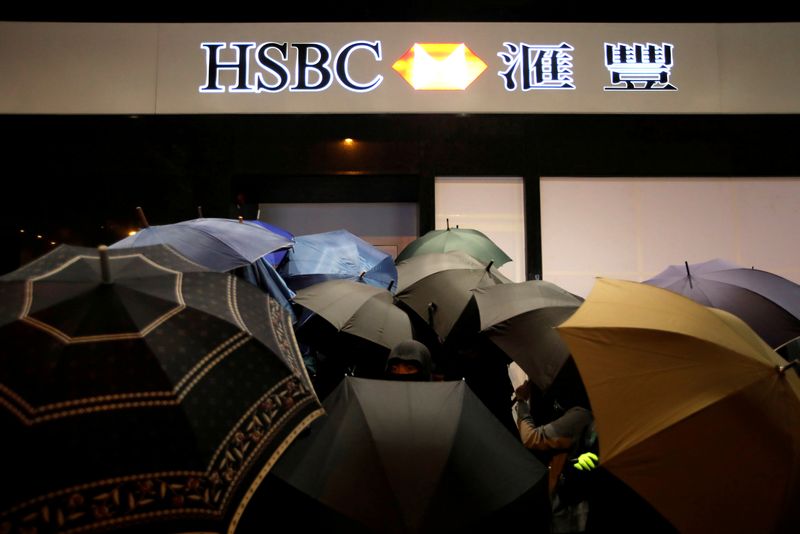This post was originally published on this site
https://i-invdn-com.akamaized.net/trkd-images/LYNXMPEG1O1RW_L.jpg
By Sumeet Chatterjee
HONG KONG (Reuters) – Hong Kong’s banks face at least two quarters of worsening asset quality and slowing loan growth as the coronavirus outbreak hits trade and consumer banking, analysts and bankers said.
Lenders in the Asian financial hub, including HSBC (L:) and Standard Chartered (L:), are seeing a drop in demand for mortgages, credit card usage and corporate loans, bankers with knowledge of the matter said.
Hong Kong banks have Asia’s largest exposure to China, which accounted for 29.4% of banking system assets in the first half of last year, credit ratings agency Fitch says.
Some of the banks have already started stress testing select parts of their China and Hong Kong businesses as fears grow of a pandemic of the flu-like virus that originated in China late last year.
“Some of the companies in Hong Kong were already hanging from a thread after months of civil unrest and now the virus has come on top of that,” said Sonny Hsu, senior credit officer for financial institutions group at Moody’s Investors Service.
“The combined effect will be much more. This time, it will be more of a problem loan and credit cost issue,” Hsu said.
An extended disruption to economic activities would weaken the banks’ asset quality and profitability, and will be a credit negative, the rating agency said.
“(The) first quarter is usually a busy month for us as clients work on their plans for the year ahead. This year, the trade finance volume is down 15% to 30% in China and Hong Kong,” a senior banker at a large global bank in Hong Kong said.
ASSET QUALITY
The biggest impact on asset quality in Hong Kong will come from retail, hotels and property as the city’s economy, already in recession after months of anti-government protests, faces increased headwinds due to the coronavirus, the banker added.
Some banks are also concerned about the likely push from Chinese authorities to extend loan repayment periods as well as make cheaper credit available, the bankers said.
“We are not thinking about origination of new business much – (the) bulk of work is focused on minimizing the hit to asset quality. It won’t be business as usual for the next two quarters at least,” a retail banker with a global bank said.
Unemployment in Hong Kong reached its highest in three years in January at 3.4%, while bankruptcy petitions submitted rose to 703 last month up from 665 a year-ago, data showed.
HSBC, which made 40% of its revenue from China and Hong Kong in 2019, said last week it could take up to $600 million in additional provisions against loan losses if the coronavirus outbreak persists into the second half.
HSBC declined further comment.
Hong Kong-based Bank of East Asia (BEA) (HK:) said last Wednesday it expected a deterioration of 10-20 basis points in credit cost, the percentage of provisioning for bad loans out of total lending, for its local business in 2020 due to the economic downturn. BEA declined to comment further.
StanChart, which also makes the bulk of its profits in Asia, is expected to echo these comments when it reports on Thursday. It declined to comment ahead of its results.

